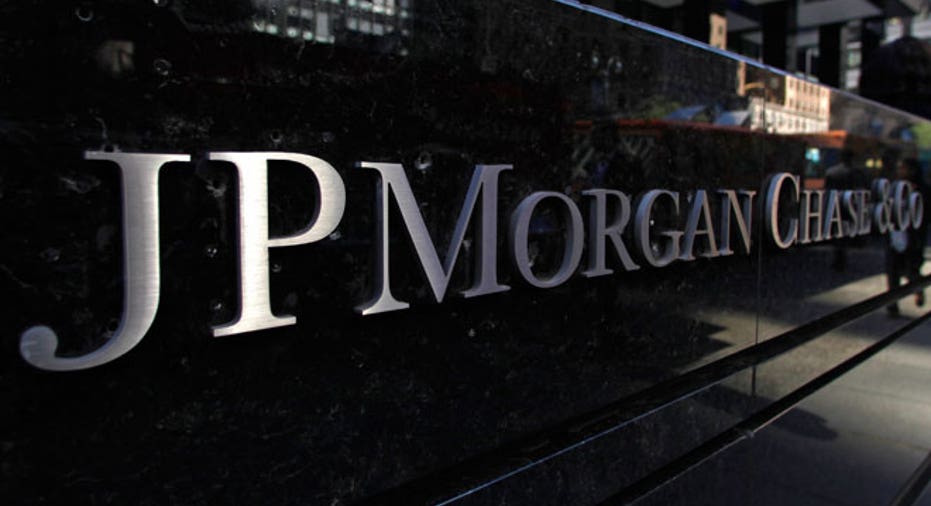JPMorgan Chase Inks $13B Settlement, Admits Misrepresenting MBS

In the largest-ever settlement with the U.S. government, banking giant JPMorgan Chase (NYSE:JPM) officially agreed on Tuesday to shell out $13 billion and admitted making serious misrepresentations over mortgage-backed securities that fueled the financial crisis.
The formal announcement ends months of careful negotiations between JPMorgan and various government agencies and the 11-figure price tag highlights the intense scrutiny facing the largest U.S. bank by assets.
While a tentative deal was reached in October, the two sides continued to hammer out the fine print in recent weeks. Those final negotiations led to a number of difficult concessions made by JPMorgan, including an agreement not to seek money from a government fund tied to soured mortgages backed by Washington Mutual. JPMorgan acquired WaMu during the height of the financial crisis.
The deal announced on Tuesday resolves federal and state civil claims related to the packaging, marketing, sale and issuance of residential mortgage-backed securities by JPMorgan and WaMu as well as Bear Stearns, the investment bank it acquired as the financial crisis heated up.
'Knowingly' Bundled Toxic Loans
“Without a doubt, the conduct uncovered in this investigation helped sow the seeds of the mortgage meltdown,” Attorney General Eric Holder said in a statement.
The settlement does not absolve JPMorgan or its employees from facing any possible criminal charges, the Department of Justice said.
The DOJ said JPMorgan agreed to admit it regularly represented to investors that the mortgage loans in various securities complied with underwriting guidelines. However, JPMorgan employees actually knew the loans in question did not comply with guidelines and were not appropriate for securitization, yet the bank allowed them to be sold anyway, the DOJ said.
These admissions of misrepresentation could open the bank up to more civil litigation from parties hurt by toxic assets.
“JPMorgan was not the only financial institution during this period to knowingly bundle toxic loans and sell them to unsuspecting investors, but that is no excuse for the firm’s behavior," Holder said.
Share Price Weathers the Storm
The deal should remove some -- but certainly not all -- of the regulatory uncertainty that has been hovering above JPMorgan for months. While this was the largest settlement in the works, the bank still faces nine other probes, including investigations related to its hiring practices in China and alleged Libor fixing.
JPMorgan said it is “fully reserved” for the settlement. The bank suffered its first-ever quarterly loss under CEO Jamie Dimon earlier this year due to $9.2 billion of legal expenses ahead of the DOJ deal.
“We are pleased to have concluded this extensive agreement,” Dimon said in a separate statement, noting the settlement covers a “very significant portion” of the bank’s legacy mortgage issues.
The bank also said it continues to cooperate with the ongoing criminal probe by the DOJ.
Shares of JPMorgan held steady after the official settlement emerged just before 3 p.m. ET and closed up 0.74% to $56.15.
Breaking Down the Fines
Part of the $13 billion settlement includes $4 billion in consumer-related relief for mortgage writedowns, anti-blight work and mortgage payment reductions. JPMorgan said it would complete the delivery of the promised relief to borrowers before the end of 2017.
The agreement also includes a previously-announced $4 billion settlement with the Federal Housing Finance Agency, which is the regulator of Fannie Mae and Freddie Mac.
Additionally, JPMorgan agreed to pay $2 billion to settle DOJ claims, $1.4 billion to settle federal and state securities claims, $613.8 million to settle New York State claims, $515.4 million related to federal and state securities claims by the FDIC, $298.9 million of California claims and several smaller fines.
“We’ve won a major victory today in the fight to hold those who caused the financial crisis accountable,” New York Attorney General Eric Schneiderman said in a separate statement that was curiously released before the DOJ's.
The settlement shows that JPMorgan agreed not to pursue funds held by a Federal Deposit Insurance Corp. receivership for settlement costs tied to toxic mortgage bonds sold by WaMu. JPMorgan acquired WaMu, at the behest of government regulators, during the 2008 financial crisis and had originally fought to tap the FDIC funds to help offset these penalties.
“The settlement announced today will provide a significant recovery for six FDIC receiverships. It also fully protects the FDIC from indemnification claims out of this settlement,” said FDIC Chairman Martin J. Gruenberg.
The $13 billion settlement is the largest ever between a company and the U.S. government, eclipsing the $4 billion penalty against oil giant BP (NYSE:BP) due to the 2010 Deepwater Horizon oil spill.
The massive size of the deal highlights the pressure on big U.S. banks due to crisis-era and other alleged misdeeds.
Thomas Gorman, a partner at law firm Dorsey Whitney and a former Securities and Exchange Commission official, said the JPMorgan settlement is “most probably a harbinger of things to come” for other big banks because it will likely serve as a model for resolving future cases.
“The size and scope of this resolution should send a clear signal that the Justice Department’s financial fraud investigations are far from over. No firm, no matter how profitable, is above the law, and the passage of time is no shield from accountability,” Holder said.



















